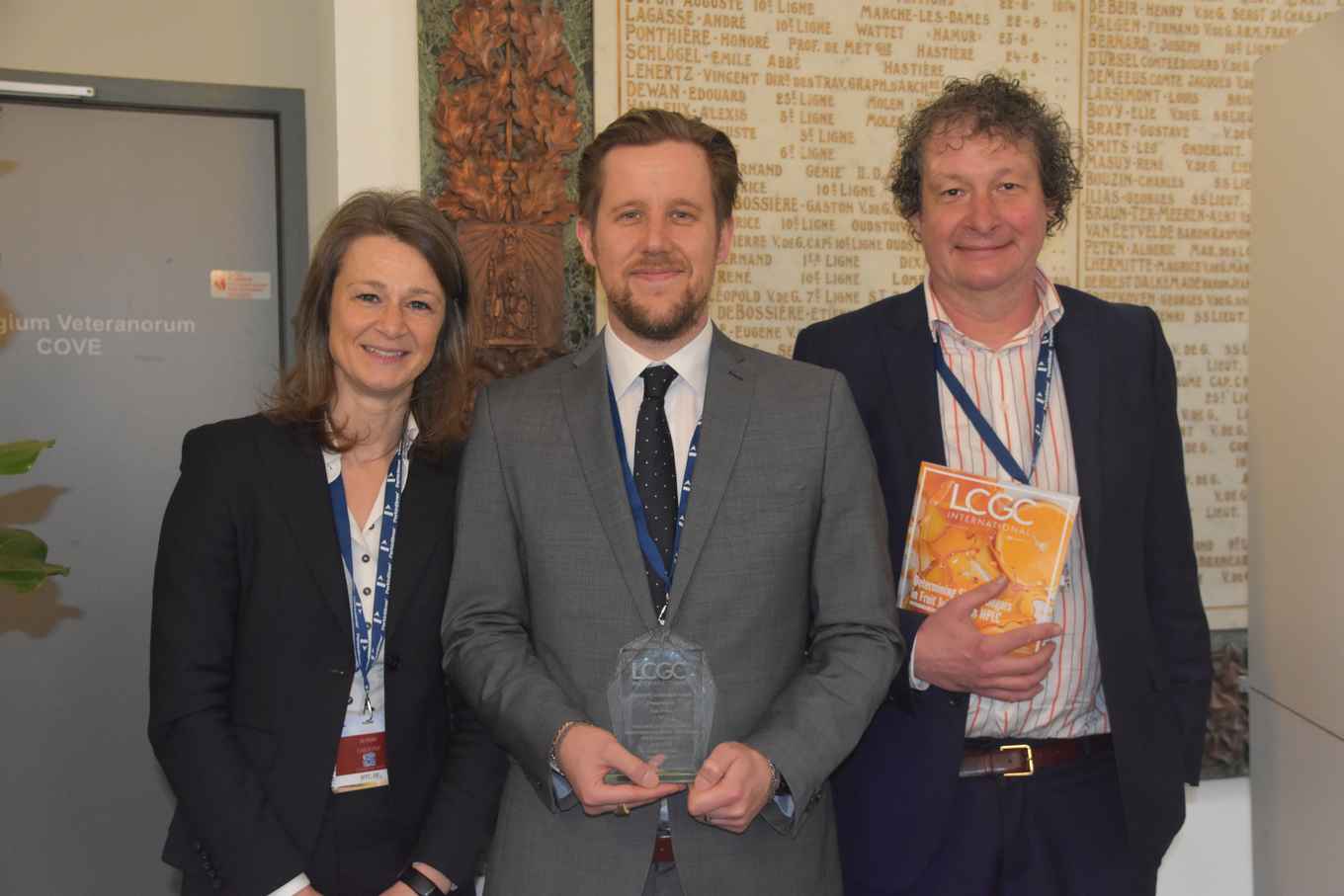Bob Pirok wins 2024 HTC Innovation Award
3 June 2024

The HTC Innovation Award was launched by LCGC International and the HTC Scientific Committee and Industry Board in honour of separation scientists who make pioneering contributions to the field of analytical separation science, with a strong focus on applications that benefit society. At the award ceremony Prof. Deirdre Cabooter (KU Leuven), Chair of the HTC-18 Scientific Committee, acknowledged Pirok’s “impressive research output”, working on polymer characterization (including pyrolysis-gas chromatography and hydrodynamic chromatography), and multidimensional liquid chromatography separations, using the interface between separation dimensions as a point of chemical transformation employing light degradation or digestion with immobilized enzymes.
Teamwork achievements
According to Cabooter, the award particularly recognizes Pirok’s research on using cutting-edge machine learning and chemometric approaches to automate method development for both one-dimensional as well as two-dimensional liquid chromatography separations. “Since method development for complex samples, such as synthetic polymers and oligonucleotides in medicinal drugs, is currently a true bottleneck, the impact of automating this process on many research fields and industries cannot be underestimated. The same approaches can also be extended to other techniques, such as comprehensive two-dimensional gas chromatography (GC×GC), further broadening the application field to, for example, hydrocarbons.”
Upon receiving the award, Pirok said to be very honoured and he accepted the prize “as a representative of a great team of people who made this work possible, in particular Tijmen Bos, Stef Molenaar, and Jim Boelrijk. These achievements are due to our teamwork. I feel blessed with the many academic and industrial collaborations and opportunities that have come on my path with great scientists around the globe. They have contributed massively to the fully automatic AutoLC method-development system that helped me earn the award”. Pirok’s research team runs several industrial-academic projects, mainly with the pharmaceutical and polymer industry. His group is known for bringing its research into education and vice versa.
See also
- At his group website you can read more about Bob Pirok’s research into Automated Chromatographic Method Development
- Prize announcement by LCGC International: Bob Pirok of the University of Amsterdam Wins 2024 HTC Innovation Award.